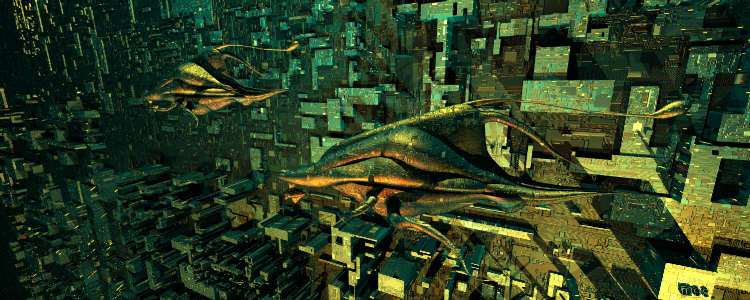
As a kid, I used to sit on the dock of the bay, watching the tide roll away, wasting time, having ocean reveries, like any other kid, like any other man. I was Ishamel waiting for the Pequod. The ships came in, heavy with spices and riches from the horizon. Armies of dockers plundered them day and night, drawing from their bloated bellies the warm and golden blood of several nations. Outlandish perfumes made me dizzy. I fell asleep to the lullaby of foreign languages. I had singsong dreams and guttural nightmares. But year after year, the ships became fewer. Many departed and were never seen again. Those who came back were empty, or the goods were rotten. Some returned only to sink of solitude, deserted by their own sailors. Business went bad. The whores left, soon followed by every soul who had made a living out the ocean. I stayed.
I turned twelve, the very age at which I would have gone shipping. I still sat on the empty wharf, throwing pebbles at seagulls too thin or too old. I was the prince of an empire of decaying wrecks, and, like the gulls, I kept seeing phantom ships against the setting sun. No more sailors. No more lullabies. I spent most of the nights half-awake on the pier, hoping that someone would switch on the lighthouse. This was about the time when I started looking at the stars, since watching the horizon brought me nothing but despair. At least the stars were living. Their flickering light had guided the mariners for centuries, and the stars were still there after they had gone. I knew some of the star names. I created my own constellations.
The first day of my new life was indeed a night. I sat on the dock of the bay, facing land, watching the last colours of sunset fading to dark blue, when the sky exploded in white blinding flames. When I opened my eyes again, I saw an arrow climbing up, higher than any seagull would ever fly. It left behind it a panache of white smoke. Rockets were still